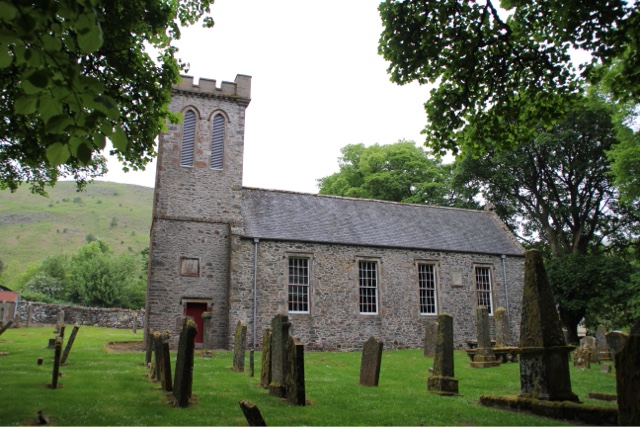We recently spent a week in the Ettrick Valley, and became interested in James Hogg through an exhibition in the old primary school.
I have also written a couple of short posts about some of his work. There is plenty of info available online too.
James left school after six months and went to work as a cowherd to help the family finances. In his teens taught himself to read and write, and play the fiddle. He began to write poems and songs.
Around 1800, while he was working as a shepherd, he met Walter Scott, who was Sheriff of Selkirk, and was collecting material for his Border Ballads. The two men became and remained friends.
Hogg moved to Edinburgh in 1810, as he was unsuccessful as a farmer. He didn't make a lot of money from his writing, but began to make a name for himself.
In 1815 the Duke of Buccleuch granted him, rent-free, the farm of Altrive in the Yarrow valley.
His most famous work, The Private Memoirs and Confessions of a Justified Sinner, was published in 1824.
James Hogg died in November1835, and is buried in Ettrick churchyard, near his parents and Will o' Phaup.
 |
| James Hogg's tombstone |
 |
| Tombstone of William Laidlaw (Will o'Phaup), and of his daughter, Margaret Laidlaw Hogg, and her husband, Robert Hogg. Robert and Margaret were the parents of James. |
Alice Munro, the Canadian short story writer and Nobel Prize winner, was a Laidlaw before her first marriage. She descends from James Laidlaw, a cousin of James Hogg, and from Will o'Phaup.
She tells the story of this in her 2006 book, The View from Castle Rock. Thanks to her book, I was able to find and decipher the gravestones - and James Hogg's epitaph for Will o'Phaup.
Here lyeth William Laidlaw
the far famed Will o'Phaup,
who for feats of frolic, agility and strength,
had no equal in his day . . .



No comments:
Post a Comment